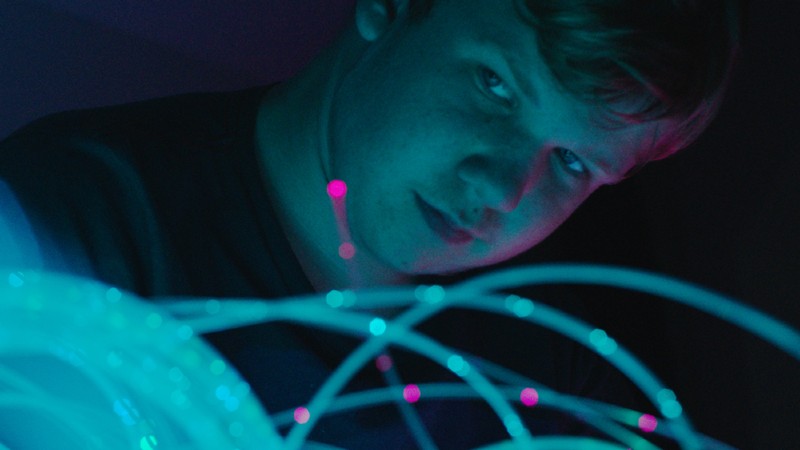QUICK SNAP: LIVE FROM TALLINN
Nikolas (Falco Cabo) is a simple man with a big dream. Living in an area of Madrid with twice the unemployment level of the city’s average, he is too undemanding to even bother ask to finalise the contract at his job in a parking lot. On the other hand, he wants to fulfil his late mother’s dream by heading out to an island far north of the Basque region. He is obsessed with far-away places and loves nothing more than to sit on his radio, listening to people communicating with sailors.
It’s evident from the beginning that he is on the spectrum, unable to communicate with people in a normal way while wearing large industrial headphones to block out loud noises. It seems that radio language appeals to him because of its simplicity and specificity, tempting him towards the Basque seaside to find his old schoolfriend Ane (Usúe Álvarez) with that particular job. He asks her if she has a boat that can take him out; she does not, but introduces him to a seaside community to help fulfil his aim in exchange for a few days work. While he is talented at his boat-repair work, his mental difficulties come under a huge amount of strain when dealing with his new colleagues.
Told with great compassion, The Radio Amateur expertly portrays the way that hurt people can transmit their pain onto others, showing examples of both wanton and unintentional cruelty. Ane reminds Nikolas that when they were in school, he called her an ugly whore after she wouldn’t let him play with his yo-yo. While this was the outburst of a developmentally challenged child, this insult caught on with the rest of her schoolfriends, causing her lasting damage. Likewise, fellow boat-worker Lupo (Jaime Adalid) is wheelchair-bound but still the cruellest person around.
Cabo embodies Nikolas with a fine sensitivity and physicality. When playing characters with mental difficulties, many actors tend to overplay the physical tics. Cabo keeps it nice and simple, allowing most of his emotions, and especially his wounded nature, to play through on his face. Álvarez plays the only young woman in the film, providing a potential balm for Nikolas’ state with a fine sense of empathy that never feels clichéd or easily won, the film actually testing the limits of how compassion and love can make a difference when those they care for are suffering from severe mental difficulties.
First time director Iker Elorrieta is also the cinematographer behind the project, allowing the gorgeous, sun-dappled, oftentimes twilight-set scenery to do a lot of the heavy lifting. While he often relies a little too much on the surrounding beauty to carry the meaning of several scenes, he is at his most impressive when creating a sense of emotional immediacy through long hand-held takes. The sound design and score blend together nicely in these pivotal moments, knowing when to cut out or add musical emotion to a particular scene. The final result is a touching reverie on mental illness and the need to be respected by others.
The Radio Amateur plays in the First Feature Competition at the Tallinn Black Nights Film Festival, running from 12th – 28th November.









